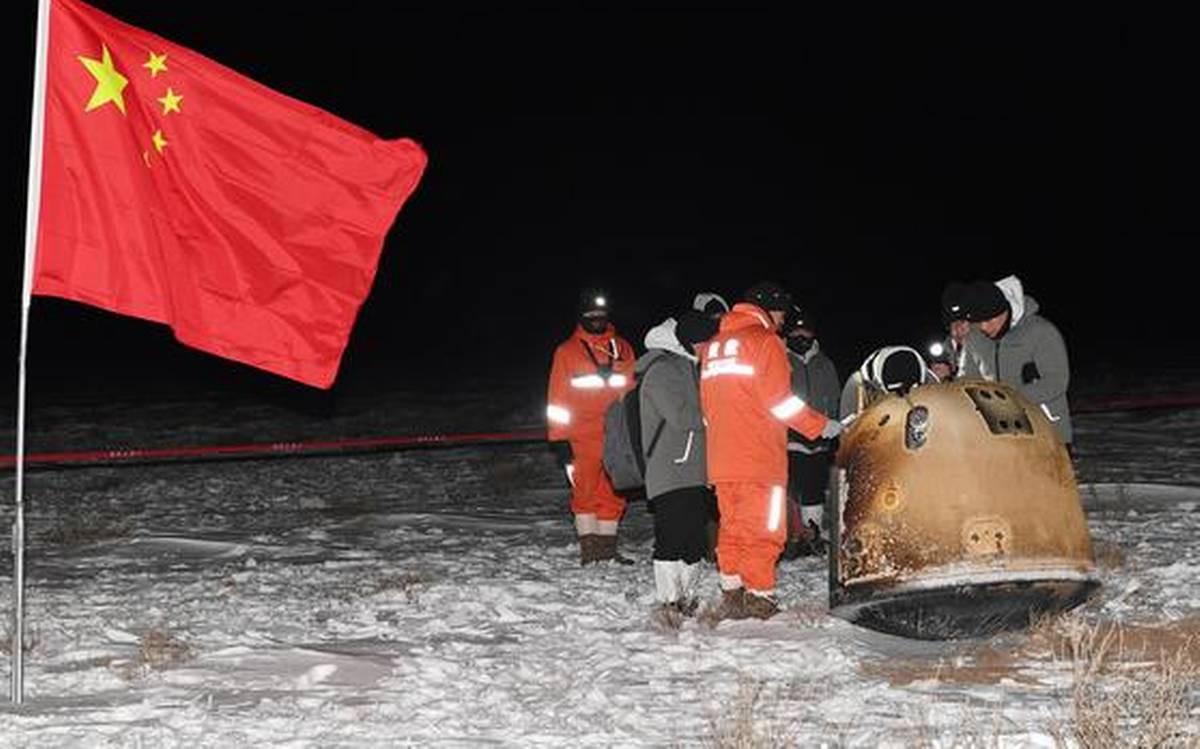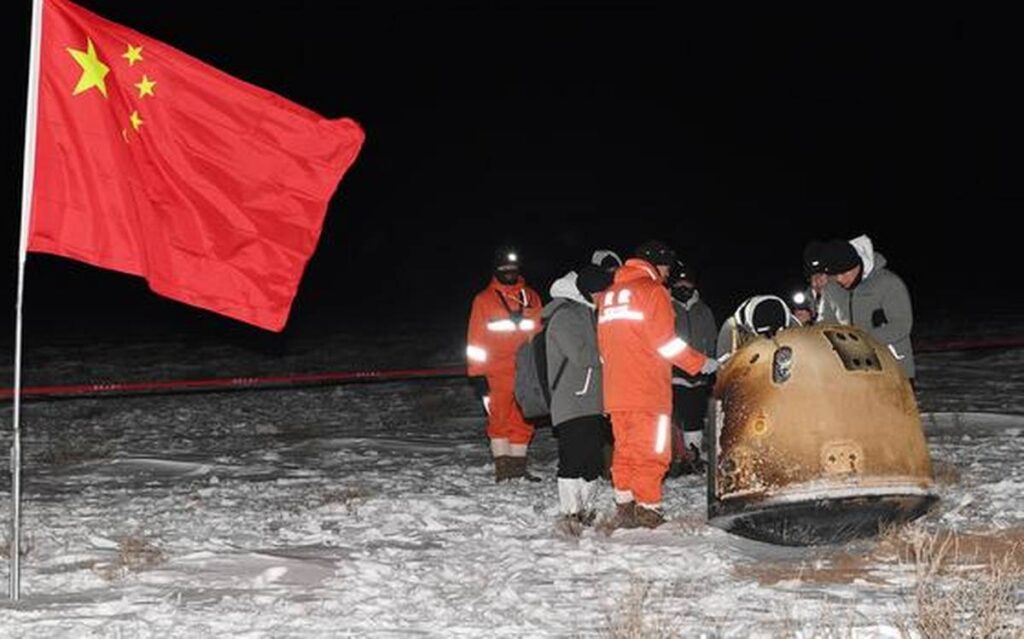
[caption id="attachment_7906" align="aligncenter" width="618"] Researchers work around Chang’e-5 lunar return capsule carrying moon samples next to a Chinese national flag, after it landed in northern China's Inner Mongolia Autonomous Region. Picture: Collected[/caption]
Researchers work around Chang’e-5 lunar return capsule carrying moon samples next to a Chinese national flag, after it landed in northern China's Inner Mongolia Autonomous Region. Picture: Collected[/caption]
Comment Now